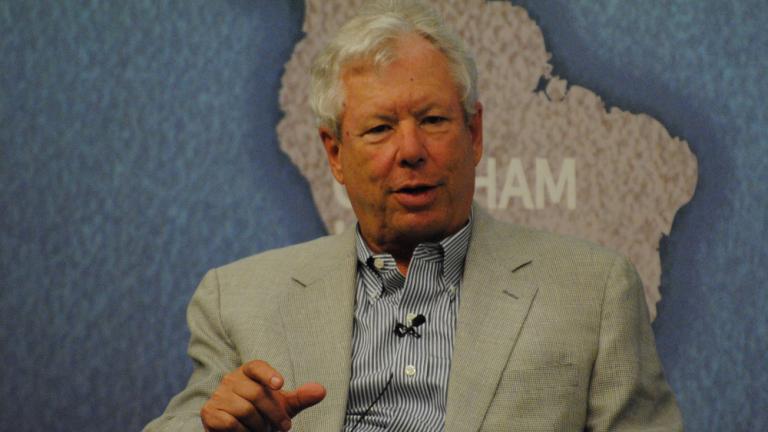
In an earlier post, I mentioned the nudge vs poke dilemma: does systemic transformation happen through the accumulation of many small changes or through revolution? Note that I am assuming systemic transformation in both cases, i.e., the end state is a world that's radically different from the one we are in now.
Nudging is a good cop, making it easier to work across the aisle so to speak. It's also a technique suited to our data driven age - make small changes, quantify their impact and then make some more small changes. A website (such as this one) might test a couple of alternative calls to action (say, "Invest in the Future" vs "Divest your Career") and see which one leads to more sign-ups for a career pledge. Or a government might test whether a 5c carbon tax is better than 3c one (where better is a joint quantification of carbon reductions and decreased tax revenue). If data driven decision making is the future, nudging is a big part of it.
As of this week, nudging also has a Nobel prize. The author of the eponymous book, Richard Thaler, won the economics Nobel this year. I can see why nudging appeals to the technocracy - it revives the eternal dream of rational policy making and in our brain obsessed age, nudging inherits the prestige of behavioral science and neuroscience. Is reason enough though? Can we get to a carbon free world through a series of small steps? Can we unboil the frog by reducing the temperature one microdegree at a time?
I would love to hear your thoughts.






